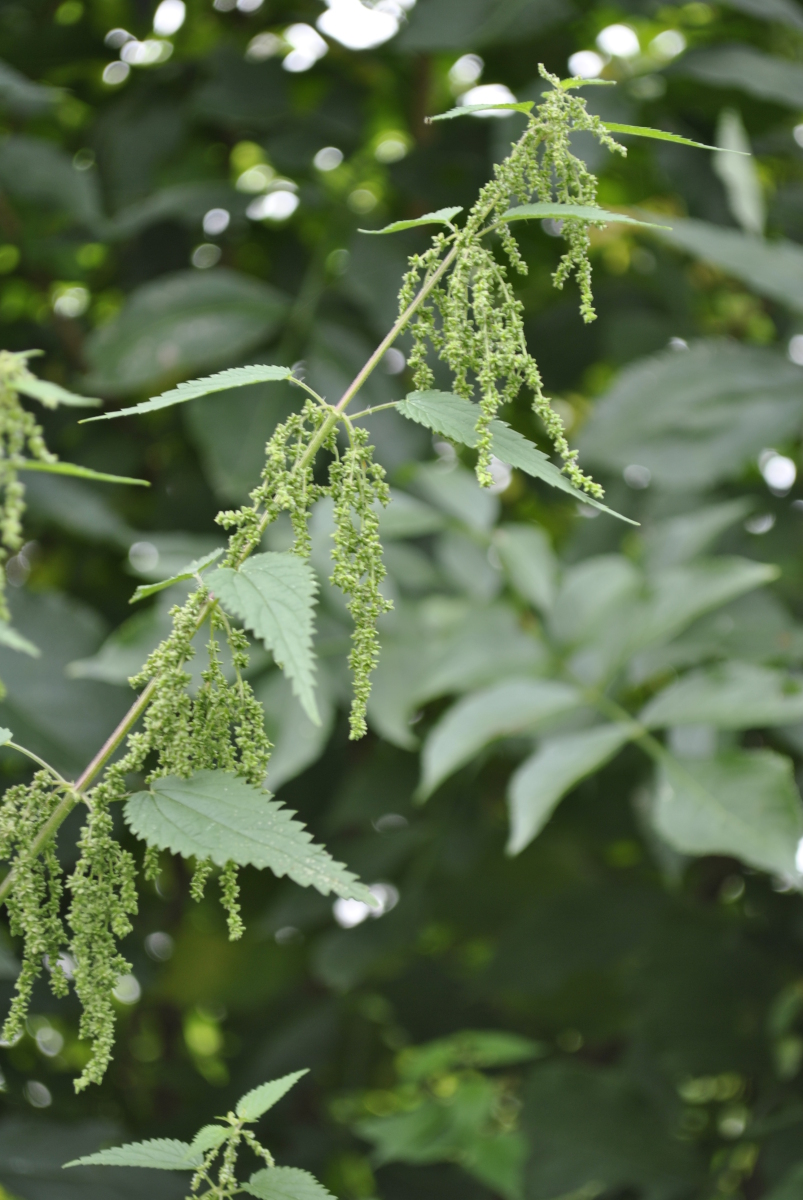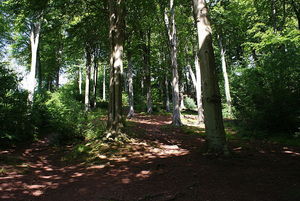Planet Earth Online - The Thugs of Nature
Interview with
Sarah - Nettles, brambles, ivy, and bracken can be bit of a problem if you're a gardener not just because they sting, scratch, and tangle but because they can actually harm the diversity of woodlands. New research into these so called thug species, led by Rob Marrs from the University of Liverpool, suggest that they can even be more damaging than invasive plant species. Planet Earth Podcast presenter Richard Hollingham joined Rob for a walk through some woodland on the outskirts of Chester to find out more.
Rob - Well the two here are obvious, there's bramble which everyone likes in the Autumn because it provides good berries, and nettles of course which stings people. The issue with both of those is that they grow well, they produce a lot of biomass above ground and therefore they can shade out less competitive species. One of the other issues is of course that we are actually looking at this against a changing baseline of atmospheric nitrogen depositions. Over the last 50 years or so there has been an increase in nitrogen and this has actually provided a signal of change in species composition of the vegetation of Great Britain, and we tend to be finding species that respond to fertiliser out-competing other species.
Richard - So there are more of these thug species like the nettles and brambles, and actually, if you look through here, if you just crouch down, it's dense with those. Nothing much else there.
Rob - Well, that's true and what's actually happening in the wider countryside as opposed to just in the woodlands is we're seeing a process of biotic homogenization. Where, if you like, the many species that we used to have are being reduced, and we tend to be getting more species with the same traits - those that can grow fast, capture nutrients, and out-compete the other species, and in more or less all habitats we're seeing this trend.
Richard - I'm, intrigued about this idea of them being a thug. I mean they're not actively pushing other species out are they? Sort of barging them out of the way?
Rob - Well, we don't know that. We didn't come up with the name thug. We just thought it was quite interesting way to describe them. You could just call them dominant or over-dominant plants, which I think is probably my preferred wordage.
Richard - For us, walking through this woodland, we can walk down the central path. There are few smaller parts off. We can't get through this area of the brambles and nettles, it's too dense. So, it's a pain for us. This doesn't look quite so nice. But what's really the big deal with these sort of plants?
Rob - Well, I don't think whether they're in the way for humans or not is relevant. I'm quite happy to wander through here, or at least I get my students to do it, because that's just how woodlands are. These species out there particularly bramble and nettle, are not particularly pleasant to work with, but if you do need to walk through them, you just walk through them. The issue really is that they have the potential to displace other species and that's where our worry is. I mean, you could argue that it's preferably reasonable to just allow this process to happen. It's sort of natural, although we are probably enhancing it with the eutrophication that's coming from the atmosphere.
Richard - So there are more nutrients around?
Rob - More nutrients, yes. But also here, we have a lot of dog walkers, and although they pickup their faeces, the dogs are still urinating and will be adding nutrients to the vegetation, and that's enhancing the growth of these particular plants.
 Richard - Well, actually we're seeing quite a few of dog walkers here. Is that why if you walk along this part, the nettles and these other thugs either side of the path do you think? Do you think that actually has an impact?
Richard - Well, actually we're seeing quite a few of dog walkers here. Is that why if you walk along this part, the nettles and these other thugs either side of the path do you think? Do you think that actually has an impact?
Rob - Well, that's one explanation. I mean, there's also possibly a bit more light in those areas but certainly, will or should at least enhance their growth, yes.
Richard - So when you look at the bigger picture here, these means that our woodlands are becoming less diverse?
Rob - Yes. Certainly if these species increase, then you would expect to see a reduction in woodland species diversity. On the other hand, if they reduce in the future there is a potential for diversity to increase.
Richard - So, what do we do about this? Do we do anything? Is this just a natural process or a semi-natural process so we should let woodland's get on with it?
Rob - Well, we can do that. The point that worries me is that if we lose too much of the diversity, we will have a much harder job to re-establish it in the future.










Comments
Add a comment